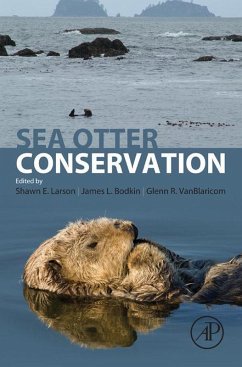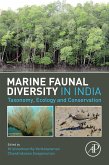Sea Otter Conservation brings together the vast knowledge of well-respected leaders in the field, offering insight into the more than 100 years of conservation and research that have resulted in recovery from near extinction. This publication assesses the issues influencing prospects for continued conservation and recovery of the sea otter populations and provides insight into how to handle future global changes.
- Covers scientific, cultural, economic and political components of sea otter conservation
- Provides guidance on how to manage threats to the sea otter populations in the face of future global changes
- Highlights the effects that interactions of coastal animals have with the marine ecosystem
Dieser Download kann aus rechtlichen Gründen nur mit Rechnungsadresse in A, B, BG, CY, CZ, D, DK, EW, E, FIN, F, GR, HR, H, IRL, I, LT, L, LR, M, NL, PL, P, R, S, SLO, SK ausgeliefert werden.
Hinweis: Dieser Artikel kann nur an eine deutsche Lieferadresse ausgeliefert werden.









